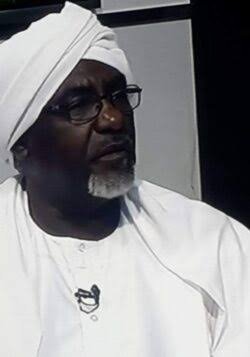“Terrorism Is Whatever the US Says It Is!”

Dr Osman Abu-Zeid
When US Secretary of State Mike Rubio was asked whether America would classify the Rapid Support Forces (RSF) as a terrorist organisation, he replied:
“I know that senators have been pushing for this for some time, and if it helps resolve the crisis, we will support it.”
There is little indication that the United States is genuinely serious about this step — despite the optimism expressed by some who believe it may happen. I asked Ambassador Dr Khidr Haroun, Sudan’s former ambassador to the United States, for his interpretation of the Secretary’s remarks. He told me:
“If Congress passes such a decision and it reaches the President’s desk, he will sign it, at which point it becomes a binding Act, not merely a non-binding resolution.”
For his part, the Prime Minister’s adviser, Mr Mohammed Mohammed Khair, made a categorical declaration that the Americans are heading towards designating the militia a terrorist organisation in December — and that he would retire from politics if this does not happen… or so he said.
It may indeed be issued by the United States; and merely designating the militia as a terrorist entity would be an important step with serious legal and moral consequences. But major powers — America included — do not always honour their commitments.
The evidence? Washington imposed sanctions twice on al-Gouni, the brother of Hemedti, yet he still travels freely in Washington after the El-Fashir massacre. And after the massacre in Geneina, the former US Ambassador to the UN described the RSF’s actions as genocide — yet nothing followed.
Such statements from US officials are not new.
In June 2023, after the atrocities in Geneina, State Department spokesman Matthew Miller said:
“The United States strongly condemns the ongoing human rights violations and horrific violence in Sudan, especially reports of widespread sexual violence and ethnically motivated killings in West Darfur by the RSF and allied militias.”
In February 2024, a bipartisan group of senators introduced a bill classifying the actions of the RSF and allied militias in Darfur against non-Arab communities as genocide.
The draft stated that the Senate:
“condemns the atrocities — including those amounting to genocide — committed by the RSF and allied militias against the Masalit and other communities.”
We still do not know what became of that bill — which also attributed part of the humanitarian catastrophe to the Sudanese Armed Forces for failing to protect civilians.
In the early days of the war, US documents on RSF violations were cautious; more recently, they have become far more explicit.
We recall that on Saturday, 4 November, when RSF forces attacked Ardamata in Geneina, the United States issued a sharply worded statement condemning the atrocities — only to delete it shortly afterwards and repost it in a milder form with key paragraphs removed.
At that time, we wrote:
“One should not expect the US administration to label any party as terrorist unless it serves its political interests.”
Was what Israel did in Gaza to civilians not terrorism?
The strangest definition of terrorism I have ever seen appears in a book by Graham Fuller, former Vice Chairman of the US National Intelligence Council, where he writes:
“Terrorism is whatever America says it is.”
The book, A World Without Islam (2010), presents a fair and logical analysis. Fuller, for instance, strongly criticises Samuel Huntington’s Clash of Civilisations, noting:
“Huntington used an inappropriate phrase when he spoke of ‘the bloody borders of Islam’.”
Fuller explains that outside its birthplace, Islam interacted peacefully with four major civilisations — Russian, European, Indian and Chinese — and that most so-called “Islamic borders” are in fact the result of Muslims living as minorities within non-Islamic systems where they adapt creatively.
The author is clear and objective when he attributes hostility towards the West to Western colonialism: invasions, exploitation of resources, arrogance, and disrespect for non-Western cultures. He argues that US policies have themselves generated more anti-American sentiment.
It is Western intervention in Middle Eastern affairs, he writes, that has produced these feelings of hostility.
Fuller proposes that Washington should act as though Islam does not exist at all — meaning it should stop framing its policies through a religious lens that distorts reality. He concludes that religion could not have done worse than what non-religious forces did: the violent extremism that killed millions in two world wars at the hands of fascists, Nazis and communists.
Shortlink: https://sudanhorizon.com/?p=8870

